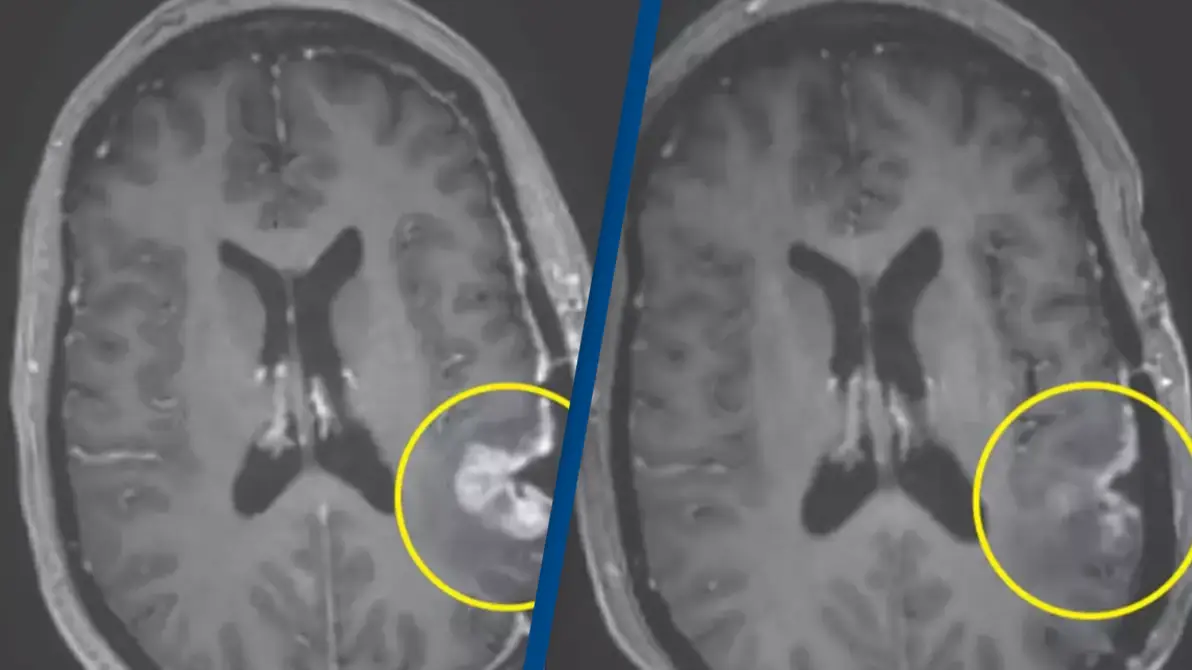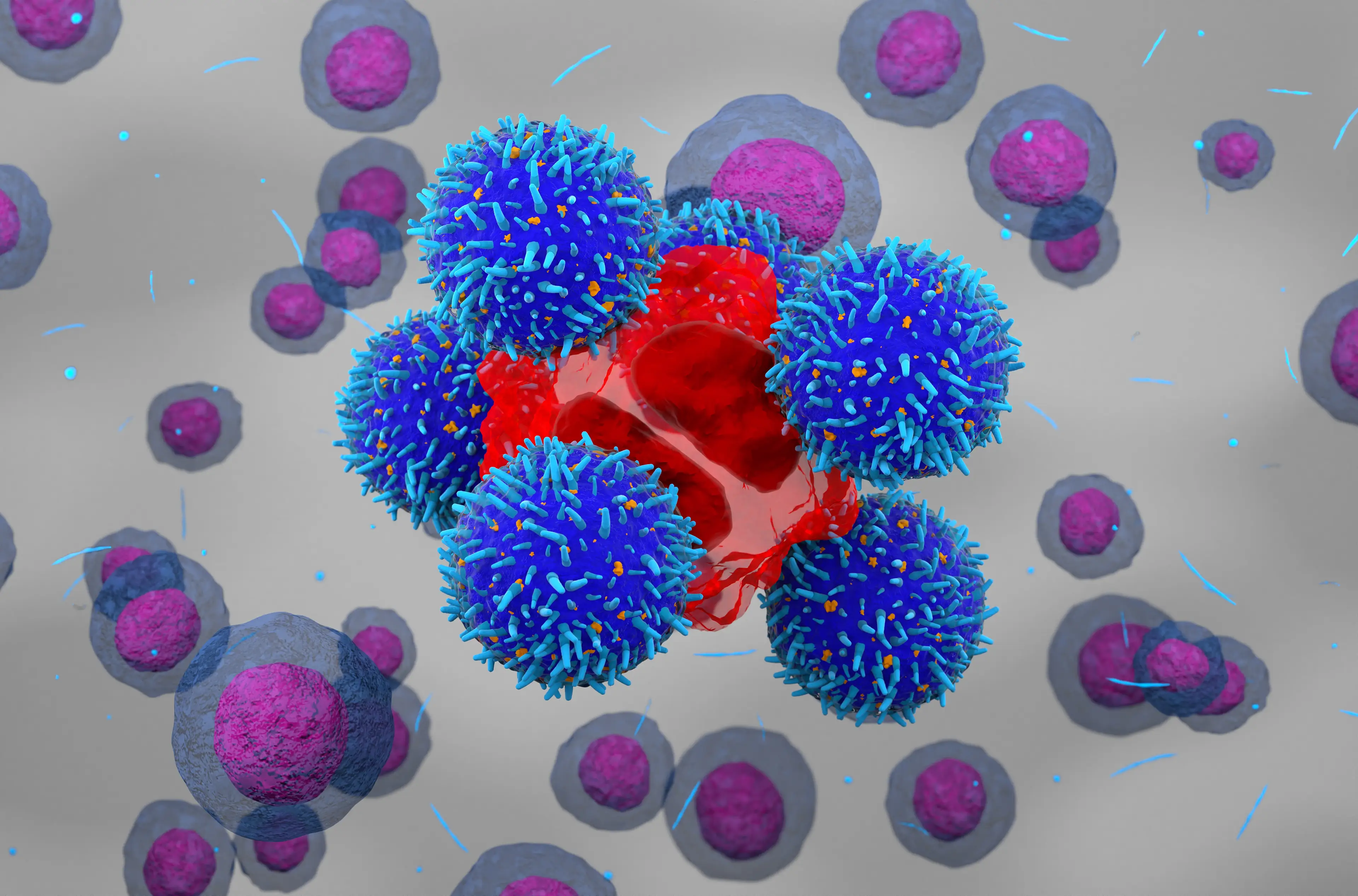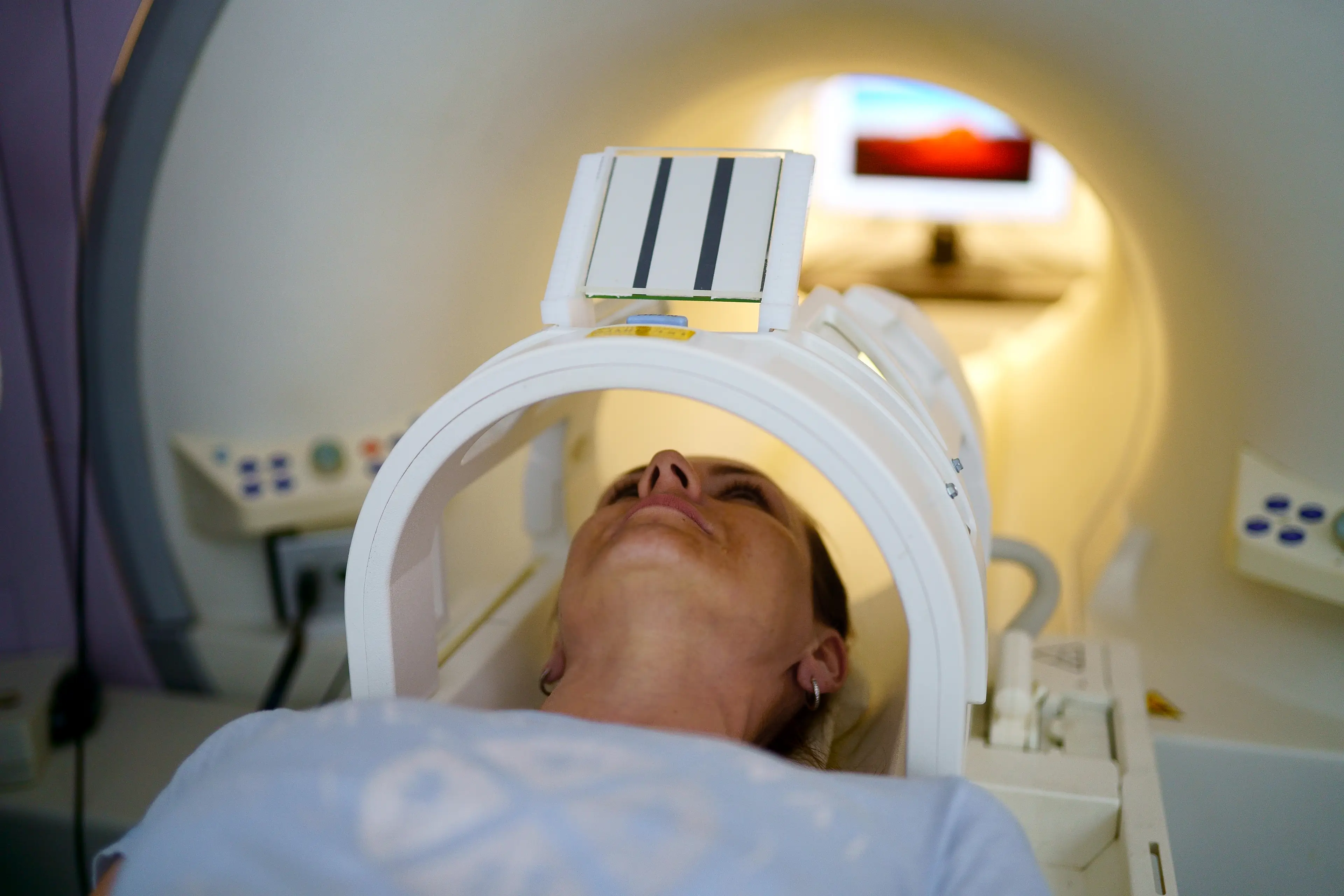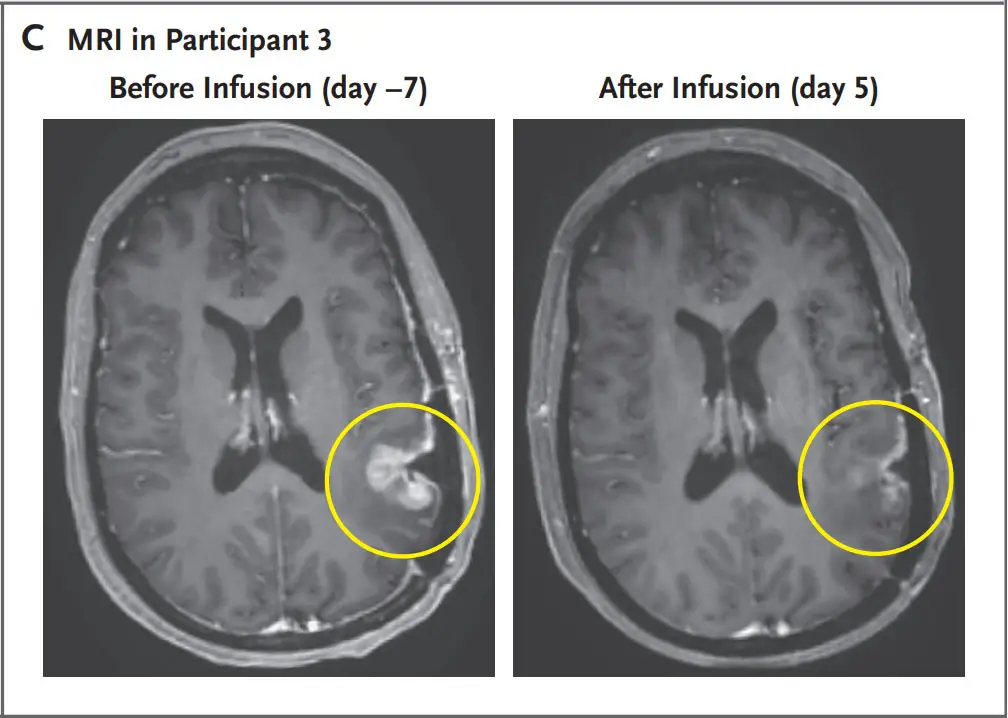
A team of researchers have revealed the 'dramatic responses' three cancer patients had to a new type of therapy.
Mass General Cancer Center researchers worked in collaboration with Mass General neurosurgeons to engineer a new type of CAR-T therapy called CAR-TEAM cells to treat people with a certain type of recurring deadly brain cancer, and test whether or not the cell therapy is safe.

The patients
The team conducted phase one of its clinical trial between March and July 2023, testing the new treatment on three patients - a 57-year-old woman and two men, aged 72 and 74 - with recurrent glioblastoma.
Glioblastoma is 'a type of cancer that starts as a growth of cells in the brain or spinal cord,' the Mayo Clinic explains.
Advert
It adds: "It grows quickly and can invade and destroy healthy tissue. Glioblastoma forms from cells called astrocytes that support nerve cells."

The treatment
The three patients were treated with CARv3-TEAM-E T cells - a new approach to CAR-T therapy.
CAR-T therapy 'is specifically developed for each individual patient and involves reprogramming the patient’s own immune system cells which are then used to target their cancer,' the NHS states.
"It is a highly complex and potentially risky treatment but it has been shown in trials to cure some patients, even those with quite advanced cancers and where other available treatments have failed," it adds.
CAR-T therapies have been approved for use on blood cancers, however, for solid tumors such as glioblastoma, it can be more tricky.

Subsequently, the team of researchers merged the strategies of CAR-T with T-cell engaging antibody molecules (TEAMs) to develop CARv3-TEAM-E T cells.
The cells are 'chimeric antigen receptor (CAR) T cells engineered to target the epidermal growth factor receptor (EGFR) variant III tumor-specific antigen, as well as the wild-type EGFR protein, through secretion of a T-cell–engaging antibody molecule (TEAM)'.
Basically, the treatment is a form of cell therapy which targets 'mixed cell populations within tumors' and the trial hopes to make the therapy a more viable and safer option for those with glioblastoma in particular.
Mass General Brigham explains: "Patients’ T cells were collected and transformed into the new version of CAR-TEAM cells, which were then infused back into each patient. Patients were monitored for toxicity throughout the duration of the study."

The results
Well, the results in terms of the patients' tumor size were nothing short of remarkable.
"Just days after a single treatment, patients experienced dramatic reductions in their tumors, with one patient achieving near-complete tumor regression," Mass General Brigham reveals.
An MRI five days after a single infusion of CAR-TEAM revealed the 57-year-old woman's cells 'showed near-complete tumor regression,' the 72-year-old man's MRI two days after treatment showed 'a decrease in the size by 18.5 percent' and by day 69, '60.7 percent' reduction. "And the response was sustained for over six months."
And the 74-year-old man's blood and cerebrospinal fluid 'showed a decrease in EGFRvIII and EGFR copy numbers, eventually becoming undetectable' after a similar single infusion.
All patients 'tolerated the infusions well' but all did suffer from feveras and 'altered mental status soon after infusion,' however, this was 'expected' and the overall harm of the treatment was considered no more risky than 'grade three or dose-limiting toxic effects'.

Reaction
Neurosurgeon and associate director of the Center for Brain Tumor Immunology and Immunotherapy, Cellular Immunotherapy Program, Mass General Cancer Center and Department of Neurosurgery, Bryan Choi, said: "The CAR-T platform has revolutionized how we think about treating patients with cancer, but solid tumors like glioblastoma have remained challenging to treat because not all cancer cells are exactly alike and cells within the tumor vary. Our approach combines two forms of therapy, allowing us to treat glioblastoma in a broader, potentially more effective way."
Marcela Maus added: "These results are exciting, but they are also just the beginning—they tell us that we are on the right track in pursuing a therapy that has the potential to change the outlook for this intractable disease. We haven’t cured patients yet, but that is our audacious goal."
Co-author on the study - published in The New England Journal of Medicine - Elizabeth Gerstner said: "We report a dramatic and rapid response in these three patients. Our work to date shows signs that we are making progress, but there is more to do."
Topics: Cancer, Health, US News, World News